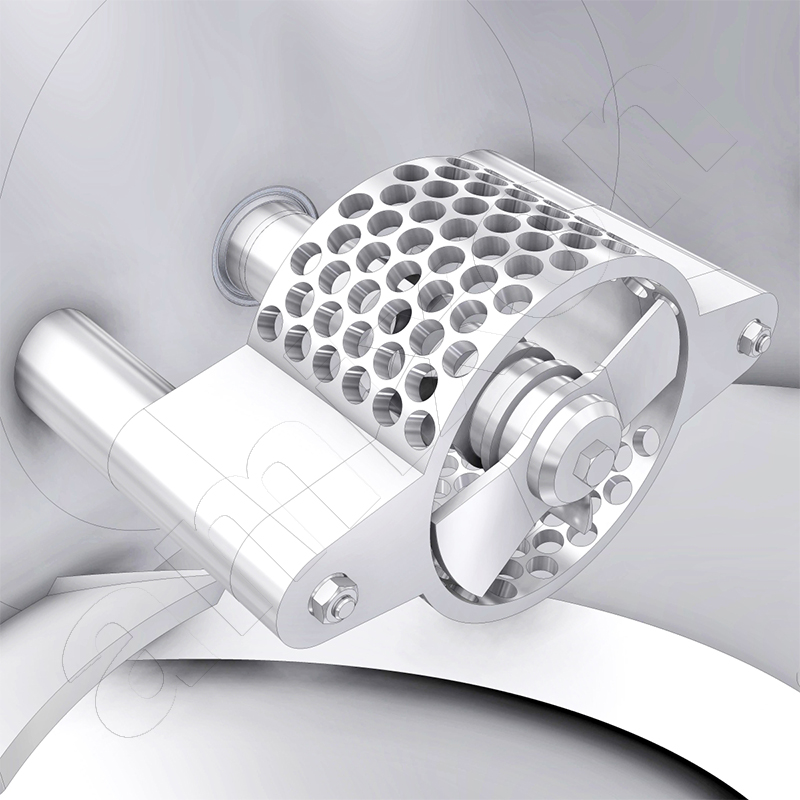
Lump-free
Lump-free mixing in bulk solids process engineering
The term lump-free is not a technical term, but is frequently used in connection with powders and bulk goods. Lumps occur in particular when powdery substances are stacked on top of each other in sacks or big bags. Lumps can also form during storage in silos over longer periods of time due to compaction, residual moisture or temperature gradients.
Freshly ground sugar is particularly critical. If it is filled directly without cooling, the residual heat in combination with hygroscopic properties can lead to immediate lump formation. In general, excess moisture, capillary condensation or the addition of liquids also promote the formation of agglomerates. These undesirable agglomerates are caused by interparticle adhesion forces such as van der Waals forces, electrostatic charging or liquid bridges. The smaller the particle size, the stronger the effect of these binding forces in relation to gravity.
The mixing technology from amixon® can largely prevent lump formation if the systems are operated in line with the process. High-shear blades and cutting rotors generate high shear gradients that efficiently deagglomerate agglomerates. At the same time, they improve liquid distribution and shorten the mixing time.
In practice, short mixing times mean a reduced input of mechanical energy. As this energy always dissipates into heat, the mix remains largely unaffected thermally in amixon® mixers. The high mixing efficiency leads to a homogeneous material distribution without measurable heating of the product.
However, there are also processes in which targeted agglomeration is desired. Examples include tablet production by pressing granulates or the build-up granulation (in a ring-layer mixing granulator) of powders to a defined particle size for better flowability and dosability. Such processing methods require precise process control and must be tested and validated in the technical centre.
Wetting and deagglomeration processes are often complex. They depend on the particle shape, surface energy, porosity, viscosity of the liquid phase and the process parameters. It is therefore advisable to carry out practical mixing tests in the amixon® technical centre. Over 30 different test mixers in various sizes and configurations are available there to realistically simulate and optimise processes.

